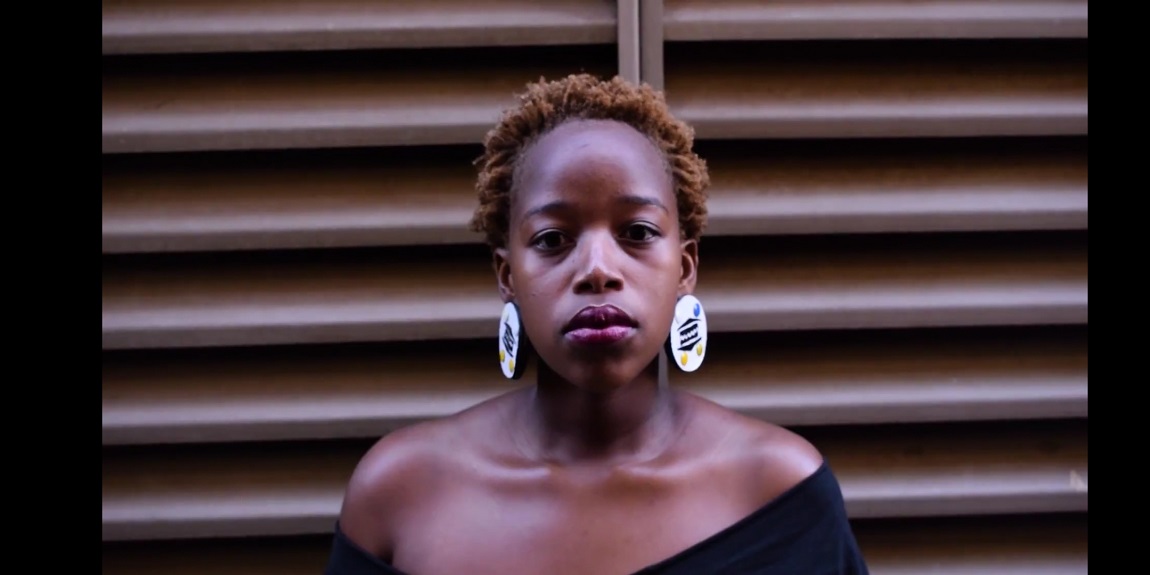A new documentary-film explores ideas of beauty and the Black female body, writes Itumeleng Molefi.
A few weeks ago I was part of the first audience to see the masterful documentary-film Ubuhle, produced and directed by Mbali Mashaba and Pretty Mangena. The two filmmakers say that the film started as an investigation into the makeup industry. One of the things they wanted to explore was why makeup brands do not make fades and foundations for dark skinned Black women. This opened a Pandora’s box of issues around beauty and the Black female body.
Instead of limiting their exploration of these ideas to their research and the interviews they conducted, Mashaba and Mangena also sought to communicate these ideas through the visual language of the film. There is a visual aesthetic that they have developed where their film does not attempt to achieve a clean and beautiful Hollywood look. By not tapping into this convention, they visually communicate their message of subverting ideals and starting important conversations around beauty and appearance.
At the beginning of the film South African poet, performer, actress and producer Lebo Mashile talks about the brown paper bag test.This was a litmus test (similar to the pencil test in South Africa) where Black people’s skin tone was compared to a brown paper bag. If your skin was darker than the paper bag, this closed doors to institutions like universities and churches. Who ascended and who got to lift their family out of poverty, Mashile tells us, depended on how light your skin tone was.
This is an example of colourism, discrimination that is based on skin colour. It is a kind of prejudice that is practised not only in Black communities, but in South Asian communities as well. Growing up, I can remember how children whose skin was darker than mine were teased and called names like mantsho (the black one) by both children and adults. Dark skin had connotations of wrongdoing and witchcraft that were indoctrinated into us. I remember noticing very early on how I was treated better than my darker-skinned friends by adults and children alike.
The experiences of the numerous interviewees that Mashaba and Mangena talked to attest to the fact that colourism is something that is still practised today. Rendani Nemakhavhani, communication designer and art director of All Hail the Honey, relates the story of how as a child she was made to believe her dark skin was ugly and dirty. As a result, she would rub her skin really hard when she washed in order to cleanse it of its blackness.
Mashaba and Mangena trace the origins of colourism to the creation of race as we understand it today to the eighteenth and nineteenth century. So-called enlightened thinkers like Immanuel Kant and David Hume claimed that the lighter your skin tone, the more intelligent you were. Others like Johann Winckelmann and Georges-Louis de Buffon believed that beauty should be measured against ancient Greek sculptures and that those who did not meet this standard were ugly and amoral. All these ideas used scientific discourse with either manipulated evidence or no evidence at all.
Ubuhle also discuss pretty privilege, which TV host and transgender activist Janet Mock defines as the “societal advantages, often unearned, that benefit people who are perceived as pretty or considered beautiful.” People perceived as beautiful are often treated better than those who are perceived as not beautiful. Pretty people are seen as more intelligent and healthier and this translates into them being more popular, having more positive reviews at work, getting higher marks at school, and being less likely of being found guilty and sentenced less harshly in places like the United States.
In the film, founder of My Skincare and model Boipelo Mabe talks about a conversation she once had with some people who work in HR. If they had two candidates with the same qualifications and work experience, they said they would choose the candidate that was prettier because that candidate would “boost morale in the office.”
Mock points out that pretty privilege is conditional and that it is not “extended to women who are trans, black, disabled, older, and/or fat.” Men are not judged in the same way: how a man looks will not necessarily determine how successful he will be in different areas of his life. There is also a duality that comes with pretty privilege. Those who tap into it are always at risk of not being taken seriously precisely because of their looks.
By using colourism and pretty privilege as the drivers of their film, Mashaba and Mangena show that beauty is about more than just how we look. It is about who is seen, who is valued and who gets silenced. Ubuhle demonstrates to us, in the words of Mashile, that “the politics of beauty are the politics of survival.”
Ubuhle was recently screened at the Cherry Film Festival and will form part of a cultural exchange with Germany in 2019. It will be showing at the Apolonia Lecture Theatre at the Wits School of Arts on Friday, 24 November 2018 at 17h30.
Itumeleng Molefi is a former science teacher and currently studies African literature at Wits University.
The views expressed in this article are the author’s own and do not necessarily reflect the editorial policies of The Daily Vox.









